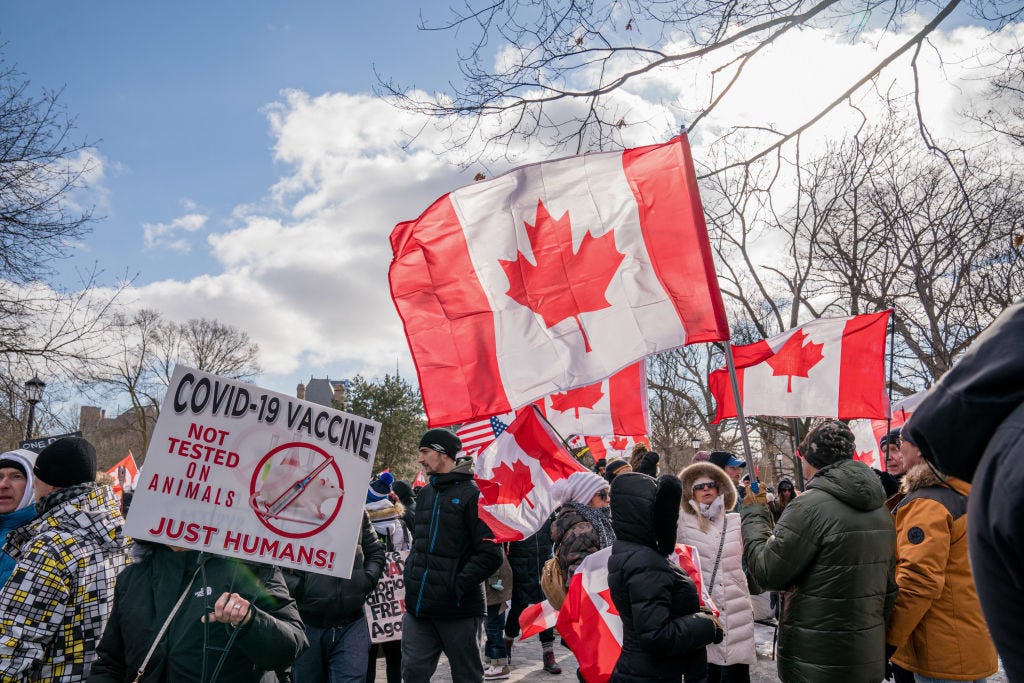
Canada Deputy Prime Minister and Minister for Finance Chrystia Freeland has announced the government is broadening the scope of the country's anti-money laundering monitoring and terrorist financing laws to cover crowdfunding platforms and the payment service providers they use.
"These changes cover all forms of transactions, including digital assets such as crypto currencies," she announced during a press conference on Monday night.
"The illegal blockades have highlighted the fact that crowdfunding platforms and some of the payment service providers they use are not fully captured under the proceeds of crime and terrorist financing act.
"Our banks and financial institutions are already obligated to report the Financial Transactions and Reports Analysis Centre of Canada or FINTRAC. As of today, all crowdfunding platforms and the payment service providers they use must register with FINTRAC, and they must report large and suspicious transactions to FINTRAC."
The expanded rules are in response to ongoing "Freedom Convoy" protests, started by Canadian truck drivers opposing COVID-19 vaccination and quarantine mandates for cross-border drivers, that have shut down border crossings and halted downtown Ottawa.
The protests, which have now entered their third week, have been partly funded by donors to self-described crowdfunding platform GiveSendGo. The platform was hacked on Sunday night, however, resulting in thousands of donor details being stolen.
According to nonprofit leak site Distributed Denial of Secrets, it has obtained donor information for the Freedom Convoy campaign from the GiveSendGo platform as of Sunday, including self-reported names, email addresses, and ZIP codes.
Distributed Denial of Secrets said it would only provide the data to researchers and journalists.
At the same time, Prime Minister Justin Trudeau invoked rarely used emergency powers under the Emergencies Act in an attempt to quell protests. The Emergencies Act gives government powers for 30 days to ban people from gathering in certain locations, allow officials to tow private vehicles blocking roads, and give power to financial institutions to block funds used to support illegal blockades.
"The Emergencies Act will be used to strengthen and support law enforcement agencies at all levels across the country. This is about keeping Canadians safe, protecting people's jobs and restoring confidence in our institutions," Trudeau said.
"We cannot and will not allow illegal and dangerous activities to continue," he continued, assuring that the government will not use the Emergencies Act to call in the military.
"We're not suspending fundamental rights or overriding the Charter of Rights freedoms. We are not limiting people's freedom of speech. We are not limiting freedom of peaceful assembly. We are not preventing people from exercising their right to protest legally," Trudeau added.
Related Coverage
from Latest Topic for ZDNet in... https://ift.tt/JK67zIB
No comments:
Post a Comment
Note: Only a member of this blog may post a comment.